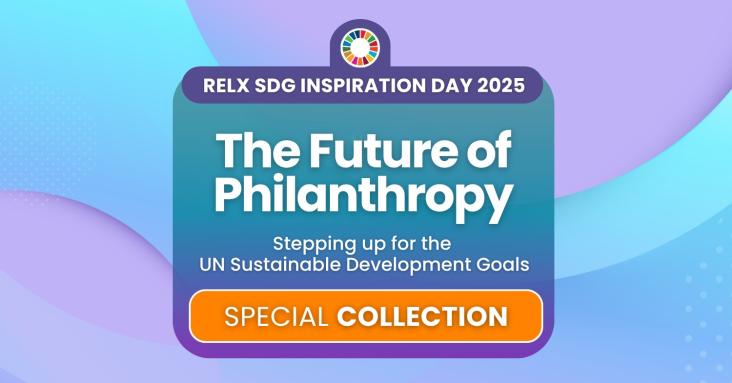
The RELX SDG Inspiration Day 2025 focuses on the role of philanthropy in bridging the funding gap to achieve the UN Sustainable Development Goals, featuring insights from prominent thought leaders. To commemorate this event, Elsevier has curated a free Special Collection with the latest research on philanthropy and the SDGs.
This article presents a participatory science framework that engages communities in soil monitoring and management through co-designed projects, educational outreach, and simplified data collection protocols.

In this episode of the "World We Want" podcast, Márcia Balisciano interviews Teresa Njoroge, Founder and CEO, Clean Start Africa. They discuss about Clean Start Africa’s efforts to provide employment training, psychological support, and vocational and entrepreneurship programs to communities affected by the justice system, helping them build sustainable livelihoods after release.

International Day of Human Space Flight 2026: A Tribute to Exploration, Unity, and Progress
Sustainable healthy diets in South Asia require a deeper understanding of food choice drivers at household, adolescent, and market levels. Addressing knowledge gaps through interdisciplinary research, improved measurement tools, and collaborative efforts is vital for guiding policy and program interventions. As food systems rapidly transform and ultraprocessed foods proliferate, targeted research and evidence-based strategies are essential to promote healthy, equitable, and sustainable diets for all populations in the region.
This review evaluates how AI-driven solutions, especially generative AI, can enhance urban energy resilience to help power systems adapt to and recover from extreme weather events and energy crises. By improving energy efficiency, reliability, and robustness, this approach directly supports the transition to carbon neutrality, which is essential for limiting global temperature increase and mitigating the impacts of climate change.
Climate change threatens global food security by reducing crop yields and increasing environmental stresses, requiring urgent innovation in crop resilience through advanced breeding, genetic engineering, and sustainable practices. To succeed, global collaboration, streamlined regulations, public engagement, and integrating field and lab research are essential for developing adaptable, climate-resilient crops that ensure a sustainable food future.
Engaging in philanthropic activities is being pursued by many well-established supply chains.


